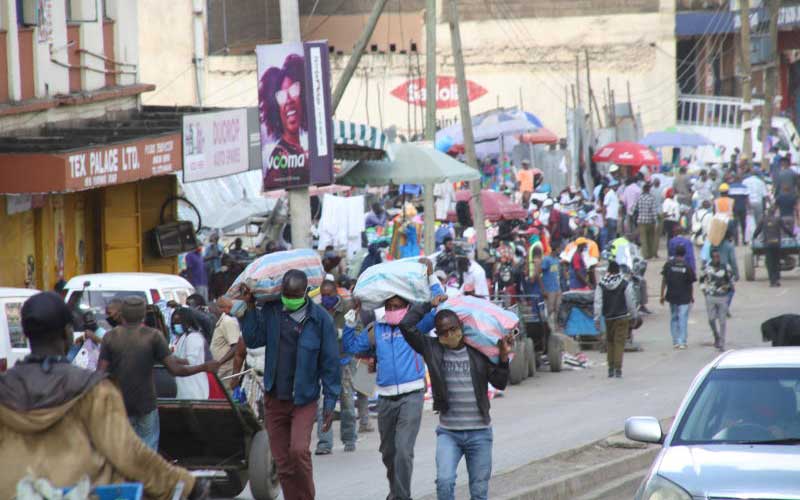×
The Standard e-Paper
Home To Bold Columnists

Traders and shoppers in Gikomba market go about their business, ignoring social distancing guidelines, despite the rising cases of Covid-19. [David Gichuru, Standard]
The roads that were clear a few weeks ago when the first cases of Covid-19 were reported have started filling up with cars.